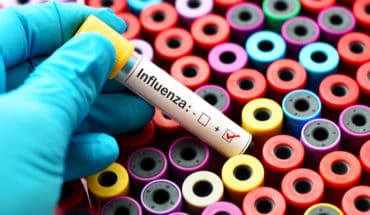Dr Daniel Sokol, a leading bioethicist and medical lawyer, has published an Intensive Care Unit triage protocol to help clinicians decide how to allocate scarce ICU resources in the event of an overwhelmed ICU.
Why did you write this?
I was getting phone calls from doctors charged with developing ICU protocols, asking for help. As far as I was aware, there were no protocols that were publicly available. There was general guidance from bodies such as the Royal College of Physicians and the British Medical Association, setting out ethical values and principles, but some questions were raised and left unanswered. The NICE guidelines sidestepped the difficult issues and so were also of limited value. As far as I could tell, there was nothing sufficiently specific as to be of practical use to clinicians. I wanted to see if I could fill that gap.
Why were there no existing protocols?
In my view, there is no political appetite for disclosing such grim documents at this stage. There are fears of causing panic and fears also of litigation. NICE was threatened with judicial review on discrimination grounds almost as soon as it published its guidance and had to issue a revision.
How did you go about creating the protocol?
I was convinced that the ‘dream team’ for the creation of such a document would be intensive care doctors, ethicists and lawyers. I knew a few of each but decided to expand the pool by asking people on social media. In the end, the document benefitted from feedback from 8 doctors, 12 ethicists and 3 barristers.
What were the biggest challenges?
Making it sufficiently detailed as to be of actual use “on the ground” but not so complicated as to be off-putting and unrealistic in the pressurised environment of the COVID wards. For example, how should clinicians determine the clinical suitability for ICU admission? Should they use a clinical decision-making tool, such as a version of the Clinical Frailty Score, the Charlson Index, SOFA, or some other measure? And how many priority levels should there be? Some of the suggestions seemed too complicated, with dozens of criteria and adding up multiple scores, and others were of doubtful legality in their tendency to discriminate against people with protected characteristics.
In the end, the protocol relies on the clinical judgement of two ICU doctors and requires classification into just one of 3 priority groups: high, moderate and low.
The issue of priority for healthcare workers was also difficult and I changed my mind on this. Priority is now recommended in certain circumstances for healthcare workers involved in the care or treatment of COVID-19 patients. Previously, it was only ICU and A &E staff.
Did everyone agree?
No, unsurprisingly. I doubt a protocol can be produced which commands universal agreement. Some people believed long term life expectancy should be factored into the decision and others did not believe in any prioritisation of healthcare workers.
In my work as a personal injury barrister, I deal with life expectancy issues all the time and they can be complicated and contested, especially when there are multiple co-morbidities. There is also a higher risk of unlawful discrimination.
About leaving out prioritisation for healthcare workers, my fear – and I know it is one shared by other lawyers – is that if you do not integrate this in the protocol it will happen in a clandestine and unlawful manner anyway. As an ethicist, I strongly believe that healthcare workers should get priority.
The BMJ are running a poll on this issue and, so far, of the 1,121 people who have voted 89% are in favour of prioritising healthcare workers and 11% against. I suspect public opinion would also be overwhelmingly in favour.
How long did the process take?
Just 2 days. I wanted to show that someone could have a good stab at it in a short period of time.
What does the protocol say?
The ultimate aim is to save as many lives as possible. A triage team should determine priority based on patients’ likelihood to surviving to hospital discharge. The team, made up of at least 2 intensive care doctors, will use their clinical judgement to put each patient into a “high”, “medium” or “low” priority group.
Within the “high” and “medium” priority group, a further triage is made based on the likely duration of ICU stay: “short” (2 days or less), “medium” (3-7 days) and “long” (8 days +). So if you have 2 patients who are “high” priority for ICU but one is a post-operative patient who probably needs just 1 day in ICU and the other is a COVID patient who probably needs 2 weeks, then the post-operative patient will take priority.
How has the response been so far?
Very positive. I know the protocol has been disseminated to key decision-makers at various NHS Trusts and I hope it will prompt them to disclose their protocols soon. I understand it has also been considered in New Zealand and Australia. I was invited to talk about it on the BBC World Service’s Newshour, and the protocol has now been translated in French and Spanish.
What do you hope will happen with your triage protocol?
I hope it will never be necessary to put it into use! However, we must at the very least prepare for the possibility of ICU being overwhelmed. Such triage protocols must be developed and shared now, preferably at the national level to ensure a consistent approach. I hope that those in charge of creating these protocols will find something of value in my document and produce something for public scrutiny soon.
Daniel Sokol, PhD, is a medical ethicist and barrister specialising in clinical negligence. He is the author of ‘Tough Choices: Stories from the Front Line of Medical Ethics’ (Book Guild, 2018).
The Intensive Care Triage protocol is available here:[http://medicalethicist.net/wp-content/uploads/2016/06/v5-Sokol-ICU-Triage-April-2020.pdf]
The French and Spanish translations are available on Dr Sokol’s website: http://medicalethicist.net/publications
shutterstock_762719617
- COVID-19 Intensive Care Triage Protocol - 11th April 2020
- Remedial Ethics For Clinicians - 8th December 2019
- Doctors, Status and Social Media - 6th June 2019







